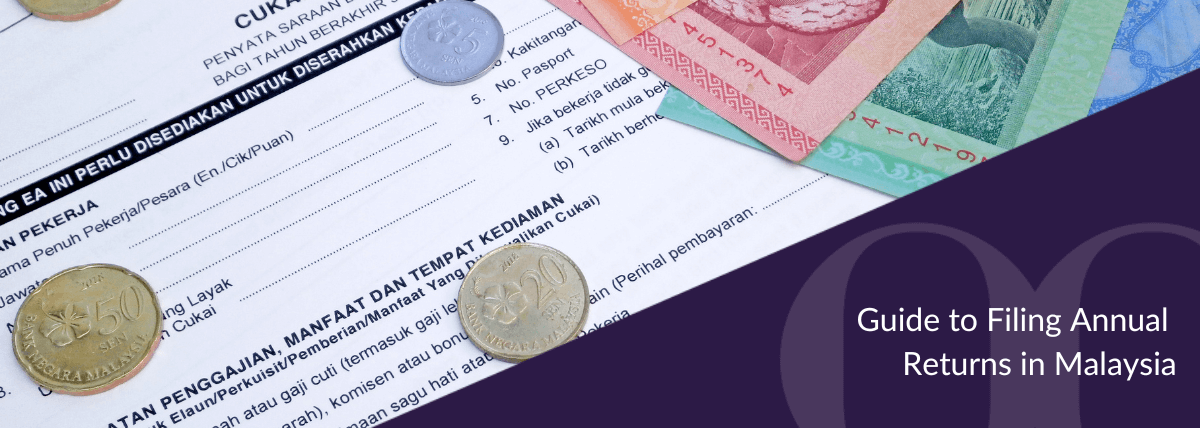For companies operating across multiple geographies in Asia, regulatory compliance stands as a strategic cornerstone for companies pursuing successful and sustainable growth. Therefore, keeping up to date with the local regulations in each region you operate is important. This includes learning about the transfer pricing rules as they apply to intercompany transactions.
In this article, we consult Cheong Woon Chee, Head of Tax Services for BoardRoom Malaysia, for an overview of transfer pricing in Malaysia, recent updates to reporting requirements and what businesses can do to ensure strong compliance.
What transfer pricing is
Transfer pricing is the setting of prices for the transfer of goods, services and intellectual property between associated parties.
In Malaysia, associated parties include entities within a multinational enterprise group, such as subsidiary companies and branches.
“These are parties who control one another or are under the common control of another party, either directly or indirectly,” Woon Chee says. Transfers between these entities are referred to as related party transactions.
“Transfer pricing exists because every country has a different tax rate,” Woon Chee explains. “For example, in Malaysia, our corporate tax rate is 24%, but in Singapore it’s 17%. Considering this huge difference, companies can use transfer pricing to save on tax.”
In addition, transfer pricing can support transparent transactions between related parties. However, a potential drawback of this transparency is that it may cause conflict internally.
“If the price is higher or lower than the market price, one of the entities may feel their interests are being sacrificed and deem it unjustifiable,” Woon Chee says.

An overview of transfer pricing guidelines in Malaysia
Transfer pricing is strictly regulated by the Inland Revenue Board of Malaysia (IRBM). Companies must abide by the Malaysian Transfer Pricing Guidelines, which provide detailed standards and rules on how businesses should handle transfer pricing in accordance with Section 140A of the Income Tax Act 1967 and the Transfer Pricing Rules 2023.
The arm’s length principle
Central to these regulations is the arm’s length principle, which dictates that transactions between related entities should be priced as if they were conducted between independent parties.
“Ideally, the transfer price should not be very different from the market price,” Woon Chee says. “So companies must do benchmarking to understand whether the mark-up they apply as part of their transfer pricing is at the median range for their industry.
“If your pricing is too high or low, you will need to justify this when you make the transfer to your related party.”

Transfer pricing documentation requirements
Malaysian regulations require taxpayers to prepare and keep transfer pricing documentation if their company:
- makes over RM 25 million in gross income, and the total amount of related party transactions exceeds RM 15 million; or
- provides financial assistance exceeding RM 50 million (this does not apply to transactions involving financial institutions).
“This documentation is simply a report to show how the transfer price was determined and justify why these prices are comparable to the price that would be applied to a third party in a similar situation,” Woon Chee says. “It enables the IRBM to ensure that the transactions between related parties were priced at arm’s length.”
The documents must be detailed and contemporaneous, meaning they should be prepared at the same time as transfer pricing policies are developed or implemented.
New transfer pricing rules introduced in May 2023 require companies to complete their contemporaneous documentation before their tax return for the year of assessment is due.
“In Malaysia, the timeline to file your corporate tax return is seven months after you close your financial year end,” Woon Chee says.
Companies that fall below the threshold are held to less scrutiny and can prepare a limited (simplified) version of transfer pricing documentation instead.
The following table shows the different types of information required for detailed and simplified transfer pricing documentation:
| Analysis Required | Full TPD | Simplified TPD |
| Organisation structure | ||
| Nature of the business or industry and market conditions | ||
| Controlled transaction | ||
| Pricing policies | ||
| Assumption, strategies and information regarding factors that influence the setting of pricing policies | ||
| Comparability, functional and risk analysis | ||
| Selection of the transfer pricing metho | ||
| Application of the transfer pricing method | ||
| Financial information |
Why compliance is vital
Taxpayers in Malaysia must supply their transfer pricing documentation upon request by the IRBM. You will only have 14 days to do so. Fail to provide your documents in time, and you may be subject to a fine between RM 20,000 and RM 100,000, or imprisonment of up to six months.
Common compliance challenges
If you are a company with multiple entities in the APAC region and looking to establish a local business in Malaysia, navigating transfer pricing regulations can be challenging. However, prioritising compliance is essential to avoid financial penalisation, potential imprisonment and reputational harm.
Without professional support, businesses often struggle with:
According to Woon Chee, the most effective way businesses can overcome the challenges of transfer pricing in Malaysia is by partnering with a knowledgeable corporate services provider.
“Businesses often don’t have time to monitor all the developments in Malaysia’s rapidly changing tax regulations,” she says. “So it can be helpful to have an expert always on hand to advise on these updates.”
Premium providers not only have extensive knowledge of local regulations but also maintain open communication with local authorities and industry bodies. This means, armed with their extensive knowledge, they serve as invaluable navigators, assisting your business to adeptly steer through the complex landscape of compliance and governance.
Another benefit of having a skilled external team support your compliance is that it frees up your executive staff to focus on what really matters to your business.
“Those running the business have more time to focus on revenue-generating operations,” Woon Chee says. “Why not leave it to the experts so that you can save time and also manage your risk?”

Tailored support with transfer pricing in Malaysia
BoardRoom provides a full suite of customised business solutions to help your company flourish in the Asia-Pacific region. Our highly sought-after service offerings include Corporate Secretarial, Company Incorporation, Accounting & Bookkeeping and Payroll, among others. With in-depth knowledge of the local tax and regulatory landscapes and a host of resources such as webinars on tax and Budget updates, our specialist Tax Advisory & Filing team can provide quality, customised support to enhance your financial planning and compliance.
Let us manage transfer pricing compliance for you so you can concentrate on taking your business to new heights.
Contact BoardRoom for more information:
Related Business Insights
-

08 Jul 2024
Guide to Filing Annual Returns in Malaysia
Ensure compliance and maintain your business's integrity in Malaysia with this guide on filing annual returns effic …
READ MORE -

24 May 2024
10 Advantages of Outsourcing Your Payroll Services
Explore the benefits of outsourcing payroll and discover how outsourced payroll providers like BoardRoom can stream …
READ MORE -

24 May 2024
IPO Application: A Guide to Listing Your Company in Malaysia
Navigate your IPO application in Malaysia effortlessly with BoardRoom's expert support and unlock opportunities on …
READ MORE





